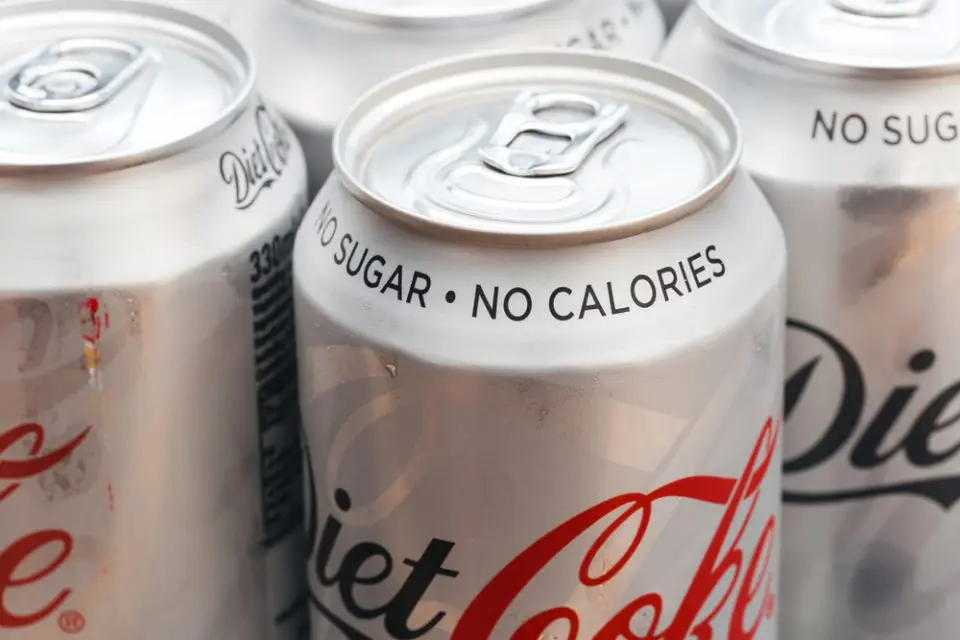Expert insights question viral drink combo

This unexpected trend combines traditional diet cola with protein shake supplements, sparking widespread discussion about its taste, practicality, and potential health benefits. While some hail it as a creative way to boost protein intake, others question its nutritional value and broader implications. Let’s dive deeper into this intriguing mix and its implications for health and culture.
Understanding the trend
The protein diet coke phenomenon originated from social media influencers, particularly in Utah, where the unusual mixture quickly gained traction. The basic recipe involves mixing diet cola with a vanilla-flavored protein shake, creating a beverage that’s part dessert, part diet hack. Videos showcasing this combination have gone viral, with proponents claiming it satisfies sweet cravings while packing a protein punch. But is it more than just a quirky concoction?
The trend’s popularity highlights the power of social media in shaping dietary habits. Influencers often frame the drink as an innovative solution for individuals looking to incorporate protein into their diets without the monotony of traditional protein shakes. Its appeal lies in its simplicity and the promise of a healthier twist on soda consumption. However, as with many viral trends, questions arise about its long-term viability and health impact.
Taste experience insights
Initial reactions to protein diet coke reveal a spectrum of opinions among consumers. Enthusiasts describe the drink as reminiscent of classic dessert beverages like cream soda or root beer floats, praising its sweet and creamy taste. On the other hand, skeptics often cite practical issues, such as ingredient separation that leads to an unappetizing appearance. Some complain about the overly artificial flavor, which detracts from its appeal.
Balancing taste and practicality
While the taste may win over some fans, others argue that the visual presentation and texture of the drink can be off-putting. The separation of protein powder or shake ingredients from the carbonated soda results in a layered effect that’s visually unappealing to many. For some, this deters regular consumption despite the flavor profile’s novelty.
Health considerations
When it comes to health, nutrition experts advise caution regarding protein diet coke. Although it’s framed as a high-protein alternative to sugary sodas, its actual health benefits are questionable. Here are some key points raised by experts:
Limited nutritional benefits
While the drink contains protein, the amount may not be substantial enough to replace traditional sources like lean meats, eggs, or legumes. For individuals focused on building muscle or meeting protein intake goals, this drink may fall short.
Potential digestive issues
Mixing carbonated beverages with protein supplements can lead to bloating and discomfort for some people. The carbonation’s interaction with protein powder often exacerbates digestive sensitivity, making it unsuitable for regular consumption.
Questionable protein absorption
Protein absorption is a critical factor in determining the value of any supplement. Consuming protein with diet soda may hinder the body’s ability to effectively process the protein, reducing its potential benefits.
Unnecessary ingredient combination
Many nutritionists argue that combining these two products is unnecessary. Traditional protein shakes or whole-food protein sources provide ample nutrition without the added artificial ingredients and potential side effects of soda consumption.
Expert perspectives
Medical professionals and nutritionists have voiced their concerns about the long-term implications of trends like protein diet coke. While they acknowledge the creativity behind the idea, they stress the importance of sticking to proven dietary practices. Here are some expert insights:
Traditional protein intake methods prove more effective
Whole foods like chicken, fish, beans, and tofu remain the gold standard for protein consumption. These options provide additional nutrients that supplements and soda cannot match.
Carbonation may cause digestive discomfort
Frequent consumption of carbonated beverages can lead to gas, bloating, and other digestive issues. When combined with protein, these effects may intensify, particularly for those with sensitive stomachs.
Artificial sweeteners add unnecessary complications
Diet sodas often rely on artificial sweeteners like aspartame or sucralose, which are linked to potential health concerns when consumed in excess. Adding these to an already processed protein shake raises questions about the overall healthiness of the drink.
Simple alternatives offer better results
For those seeking a flavorful way to enjoy protein, blending protein powder with almond milk, fruit, or yogurt is a more natural and satisfying option. These alternatives avoid the pitfalls of artificial ingredients while delivering better taste and nutritional value.
Consumer guidance
Understanding protein diet coke requires a balanced perspective. While the trend’s novelty appeals to many, it’s essential to weigh the excitement of experimentation against the reality of nutritional science. Here are a few practical takeaways for consumers:
Experimentation is okay, but moderation is key
Trying viral trends like protein diet coke can be fun and engaging, but over-reliance on such beverages isn’t advisable. Moderation ensures that experimentation doesn’t compromise overall health.
Focus on traditional protein sources
Rather than relying on mixed beverages, consumers should prioritize whole foods and minimally processed protein sources to meet their dietary needs.
Evaluate trends critically
Viral phenomena often prioritize attention-grabbing qualities over substance. Evaluating trends through the lens of health and practicality ensures better decision-making.
Future implications
As beverage trends continue to evolve, protein diet coke demonstrates the power of social media in shaping consumption habits. It also underscores the importance of critically assessing health claims popularized by influencers. While trends like these may offer short-term entertainment and novelty, they remind us to approach dietary decisions with thoughtfulness and scientific scrutiny.
Protein diet coke may not revolutionize nutrition, but its viral success highlights a growing appetite for creative approaches to health and wellness. As consumers, understanding these trends equips us to navigate the ever-changing landscape of food and beverage culture wisely.















